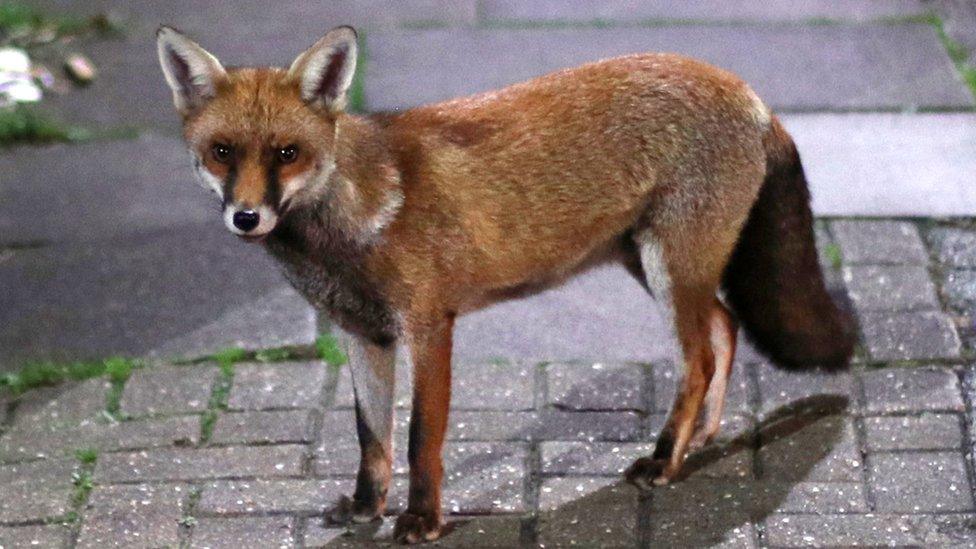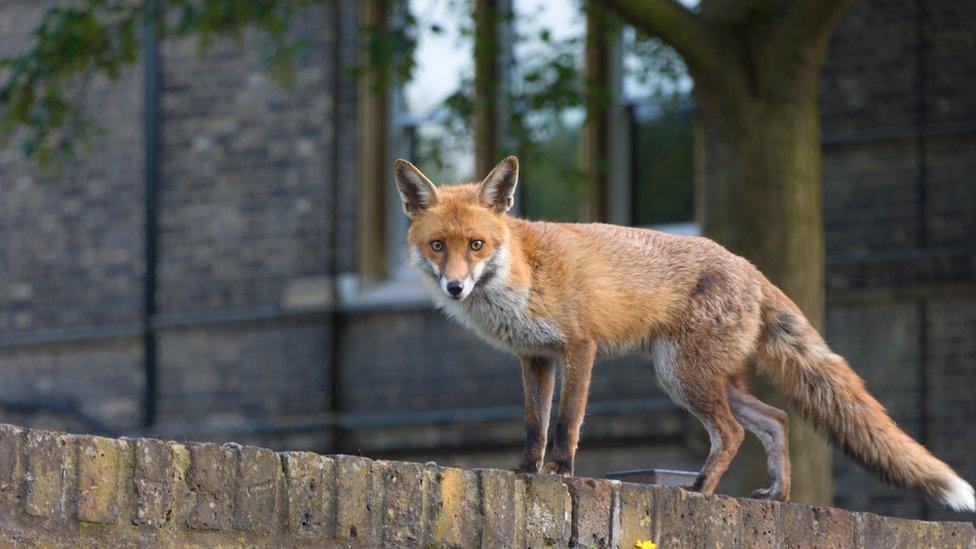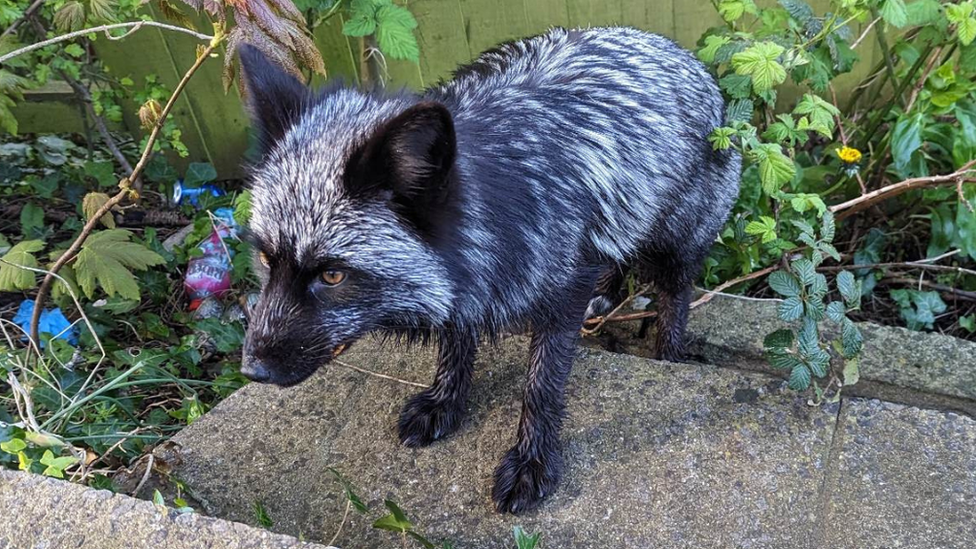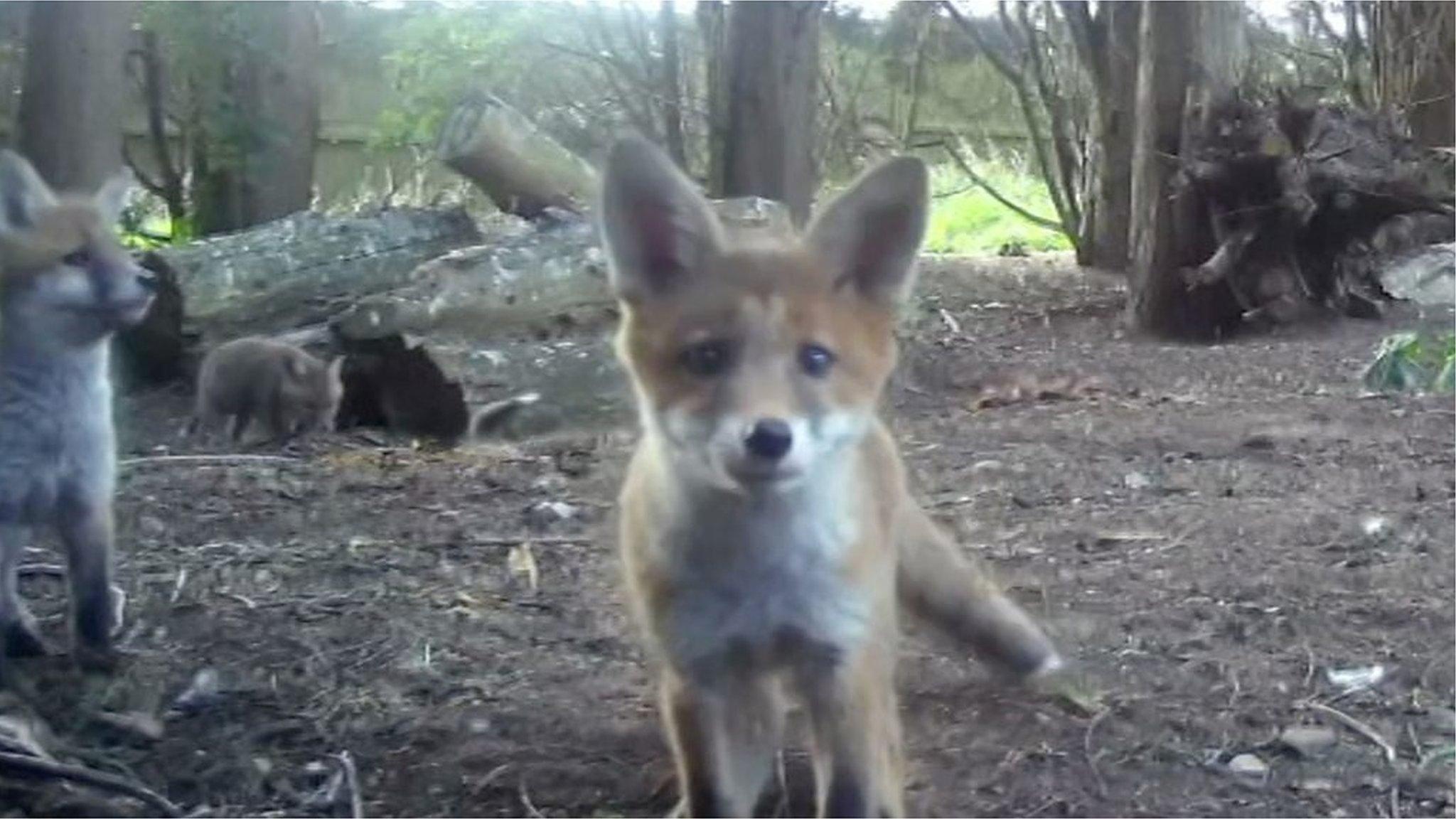Urban foxes bolder but not smarter than rural ones, study suggests
- Published
Urban and rural foxes problem solving skills were compared in a series of puzzles
Urban foxes may be bolder than their rural relatives but they are not smarter, according to researchers.
University of Hull scientists set puzzles for dozens of the animals as part of a two-year study into wild foxes in England and Scotland.
The foxes were challenged to carry out simple tasks to access food.
Blake Morton, who led the research, said while city foxes were more likely to go up to the puzzles and touch them they were just as bad at solving them.
The team, which involved academics from the Universities of Lincoln and Glasgow, and Atlanta Zoo, left them tasks to do for rewards in parks, back gardens and woods.
The puzzles, which were left in 104 locations, included simple mechanisms that the foxes needed to lift, pull or rotate a lid or lever to access the food.

Urban foxes may be bolder than their country cousins but city life has not made them cleverer, researchers suggest
Dr Morton, a psychologist and animal behaviourist, said: "For years, researchers have claimed that urbanisation is making wildlife bolder and smarter due to the challenges they face from 'life in the city'.
"In our study, we tested this hypothesis in wild red foxes by giving them unfamiliar puzzle feeders to see how they would react.
"We found that urban foxes were more likely to behave bolder than rural populations in terms of their willingness to physically touch the puzzles, but they were not more motivated to try to gain access to the rewards inside."
The study, published in Animal Behaviour, found that foxes from 96 locations acknowledged the puzzles, but foxes from only 31 locations touched them and foxes from just 12 locations gained access to the food.
"Although we found a tendency for London foxes to behave bolder and exploit the puzzles, many other foxes in our study were too shy or unmotivated to exploit them despite having access for up to two weeks," Dr Morton said.
"When we left food on the ground without any puzzle, all foxes - regardless of location - willingly ate the free food."

Dr Morton hopes the study will challenge people''s perception of foxes as "notorious scavengers" that litter and raid outdoor bins
The research is part of the British Carnivore Project, which was founded in 2021 by Dr Morton and examines how climate change and the expansion of cities are affecting the behaviour of wild animals native to Britain.
"Foxes are renowned for thriving in cities, and our study suggests that bolder behaviour may help urban foxes adapt to such settings. However, just because a fox lives in a city doesn't necessarily mean it'll engage in problem-solving.
"This latter finding challenges the long-standing belief that urban foxes are notorious scavengers of other human-made food containers, such as litter and the contents of outdoor bins."
Dr Morton said urbanisation was the "fastest form of landscape transformation on the planet" with human food sources leading to possible conflicts between animals and people.

Follow BBC East Yorkshire and Lincolnshire on Facebook, external, Twitter, external, and Instagram, external. Send your story ideas to yorkslincs.news@bbc.co.uk, external.
- Published26 April 2023

- Published31 May 2022

- Published17 May 2022

- Published19 May 2021
